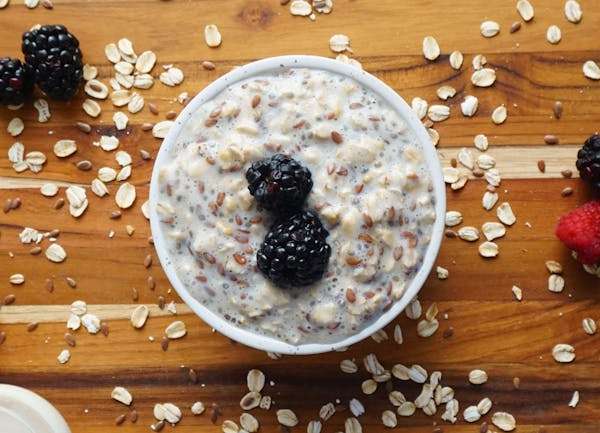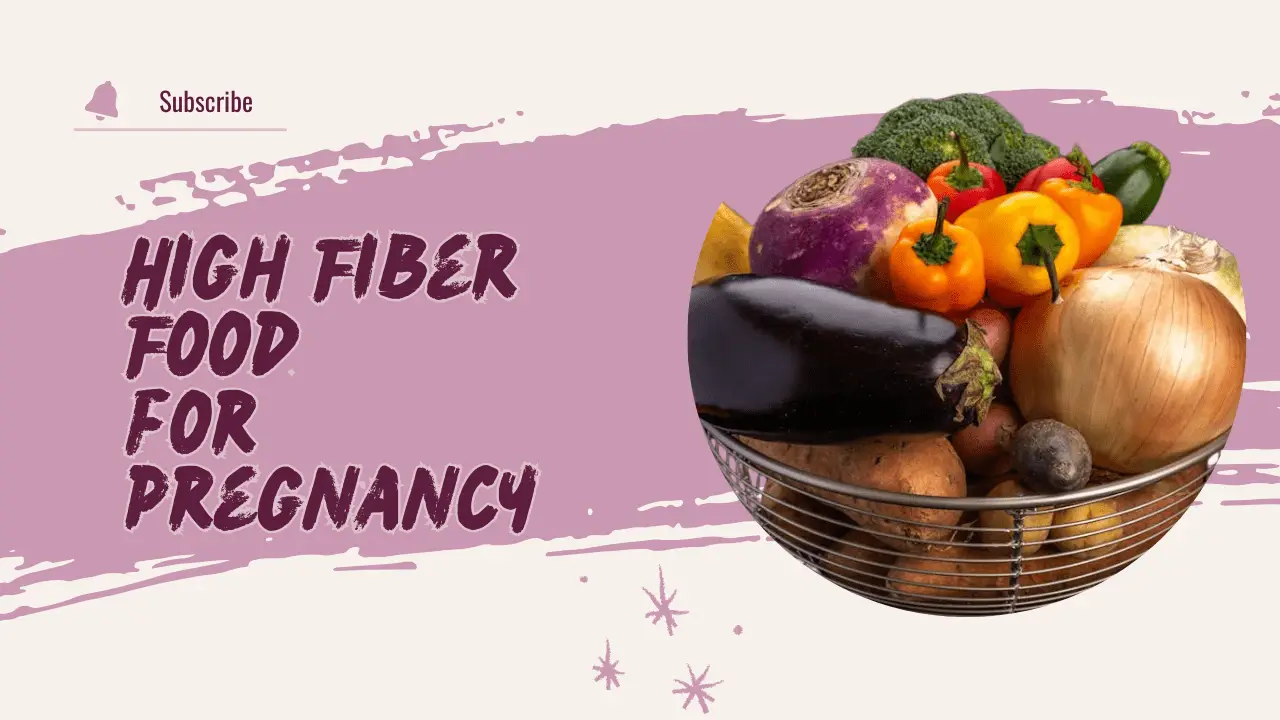Pregnancy requires strict adherence to a healthy diet because it immediately affects the growth of the unborn child as well as the mother’s health. Fiber is unique among the many nutrients needed for a healthy pregnancy because of all of its advantages.
Because they assist in controlling common pregnancy-related concerns including constipation, blood sugar swings, and excessive weight gain, high-fiber foods are especially beneficial during pregnancy.

You can support your entire pregnancy experience, improve your digestive health, and maintain your energy levels by eating more foods high in fiber. It can greatly impact your pregnancy experience to know why certain foods are essential and how to include them in your meals.
How High-Fiber Foods for Pregnancy Improve Digestive Health:
Constipation is a common concern during pregnancy due to hormonal changes and the growing uterus exerting pressure on the digestive system. Incorporating high-fiber foods into your diet can provide much-needed relief.
As a natural laxative, fiber softens feces and absorbs water, making them easier to pass. This ensures a happy pregnancy experience by promoting regular bowel movements and preventing constipation.

Furthermore, through supporting healthy gut flora, foods high in fiber also improve digestive health in general. These good bacteria support immune system performance, nutrition absorption, and digestion.
Eating a selection of meals high in fiber gives your infant a wide range of nutrients to assist his or her growth and development. Recall that in order to prevent bloating or discomfort, it’s critical to increase your fiber intake gradually and drink lots of water.
High Fiber Foods for Pregnancy: Key Benefits:
High-fiber foods for pregnancy offer a range of essential benefits that can significantly enhance both the mother’s and the baby’s health. The main advantage is better intestinal health. Fiber adds weight to the stool and encourages regular bowel movements, which helps reduce constipation, a common problem during pregnancy.
This relieves pain and lowers the chance of hemorrhoids, which are made worse by straining when having a bowel movement. The ability of high-fiber diets to control weight gain during pregnancy is another important advantage.
Foods high in fiber have a large volume but low-calorie content, which helps you feel satiated for longer. This can help avoid overindulging and support a healthy weight gain during pregnancy, which is important for the health of the mother and the developing fetus.
High-fiber foods for pregnancy also play a critical role in stabilizing blood sugar levels. Soluble fiber, found in foods like oats and beans, slows the absorption of sugar into the bloodstream, reducing the risk of gestational diabetes.

Additionally, a diet high in fiber supports heart health by lowering cholesterol levels, which is especially important during pregnancy when the cardiovascular system is under increased strain. By incorporating high fiber foods into your diet, you can enjoy these key benefits and support a healthy pregnancy.
Best Sources of High Fiber Foods for Pregnancy:
Incorporating a variety of high-fiber foods into your pregnancy diet is essential for overall health and well-being. Here are some excellent sources to consider:
- Whole Grains: Opt for whole-grain bread, pasta, brown rice, and oatmeal, as they are rich in both soluble and insoluble fiber.
- Fruits: Incorporate fruits like apples, berries, pears, and bananas into your daily diet. They offer a good source of fiber and essential nutrients.
- Vegetables: Consume a wide range of vegetables, including leafy greens, broccoli, carrots, and sweet potatoes. These are packed with fiber and vitamins.
- Legumes: Lentils, chickpeas, and beans are excellent sources of fiber and protein. They can be enjoyed in various dishes like soups, stews, and salads.
- Nuts and Seeds: Almonds, walnuts, chia seeds, and flaxseeds are nutritious options that provide fiber, healthy fats, and other essential nutrients.
Drinking plenty of water is also crucial to help soften stools and prevent constipation. By incorporating these high-fiber foods into your pregnancy diet, you can support your overall health and ensure the optimal development of your baby.
How Much Fiber Do You Need?
Understanding how much fiber you need during pregnancy is crucial for maintaining overall health and well-being. The recommendation for pregnant women is about 25 to 30 grams daily.
This quantity lowers the chance of constipation, promotes healthy weight gain, and ensures that your digestive system runs properly. In order for fiber to perform effectively and make stools softer and easier to pass, it’s critical to balance your intake of fiber with enough water.
Fruits, vegetables, whole grains, and legumes are examples of high-fiber foods that can assist you in meeting this recommended intake throughout pregnancy. For instance, an apple with the peel on has roughly 4 grams of fiber, compared to about 15 grams in a cup of cooked lentils. You may take care of your fiber requirements without overburdening your digestive system by incorporating a range of these items into your diet throughout the day.
However, it’s important not to increase your fiber intake too quickly, as this can lead to bloating, gas, and discomfort. Gradually incorporating more high-fiber foods for pregnancy into your diet allows your body to adjust.
Additionally, pairing fiber-rich foods with plenty of water is essential to avoid potential digestive issues. By maintaining the recommended fiber intake, you can support a healthy pregnancy and enjoy the benefits of a well-functioning digestive system.
Tips for Incorporating More Fiber into Your Pregnancy Diet:
Here are some practical tips to help you increase your fiber intake during pregnancy:
- Start gradually: Begin by incorporating small amounts of high-fiber foods into your meals. This will give your digestive system time to adjust and reduce the risk of bloating or discomfort.
- Choose whole grains: Opt for whole-grain bread, pasta, rice, and cereals over refined grains, as they contain more fiber and nutrients.
- Add fruits and vegetables: Incorporate a variety of fruits and vegetables into your daily diet. They are excellent sources of fiber and essential vitamins and minerals.
- Include legumes: Lentils, chickpeas, and beans are packed with fiber and protein. It can be taken in salad, stews, and soup.
- Snack smart: Choose fiber-rich snacks like nuts, seeds, fruits, and vegetables.
- Stay hydrated: Drinking a lot of water is good for maintaining digestive health and preventing constipation.
- Listen to your body: If you experience excessive bloating or discomfort, gradually reduce your fiber intake and consult with your healthcare provider.
By following these tips, you can easily increase your fiber intake and enjoy the benefits of a high-fiber diet during pregnancy.
Conclusion:
It is imperative to incorporate high-fiber foods for pregnancy into your daily diet in order to stabilize blood sugar levels, manage weight gain, and preserve digestive health. Through a progressive increase in fiber consumption combined with enough water, you can successfully avoid typical pregnancy-related problems like constipation.
Making high-fiber foods a priority throughout pregnancy promotes both your health and the growth and development of your unborn child. Make dietary fiber a priority in your pregnancy diet plan. Click to learn more.
FAQs:
- What are the best high-fiber foods for pregnancy?
Fruits, vegetables, whole grains, and legumes are some of the best high-fiber foods for pregnancy. - How much fiber should I eat during pregnancy?
Pregnant women should aim for 25 to 30 grams of fiber per day to maintain digestive health. - Can eating high-fiber foods during pregnancy prevent constipation?
Yes, high fiber foods help prevent constipation by adding bulk to stool and promoting regular bowel movements. - Are there any risks to eating too much fiber during pregnancy?
Increasing fiber too quickly can cause bloating and gas, so it’s important to add fiber to your diet gradually. - How can I easily add more fiber to my pregnancy diet?
Incorporate whole grains, fruits, vegetables, and legumes into meals and snacks, and drink plenty of water to support fiber digestion.
